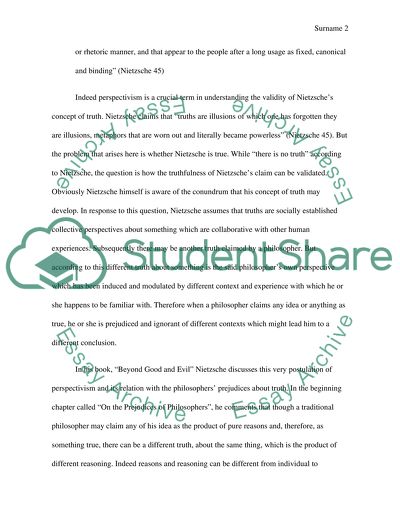In response to Nietzsche Essay Example | Topics and Well Written Essays - 750 words. Retrieved from https://studentshare.org/philosophy/1459050-in-response-to-nietzsche
In Response to Nietzsche Essay Example | Topics and Well Written Essays - 750 Words. https://studentshare.org/philosophy/1459050-in-response-to-nietzsche.


